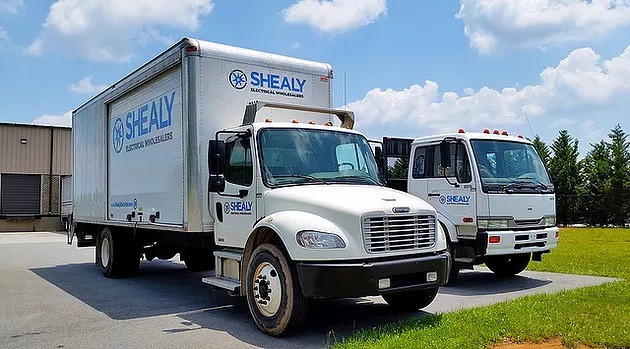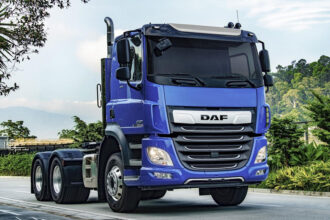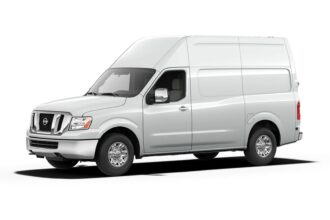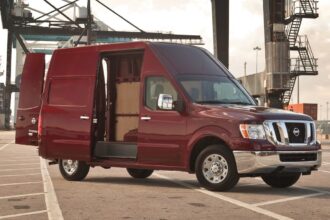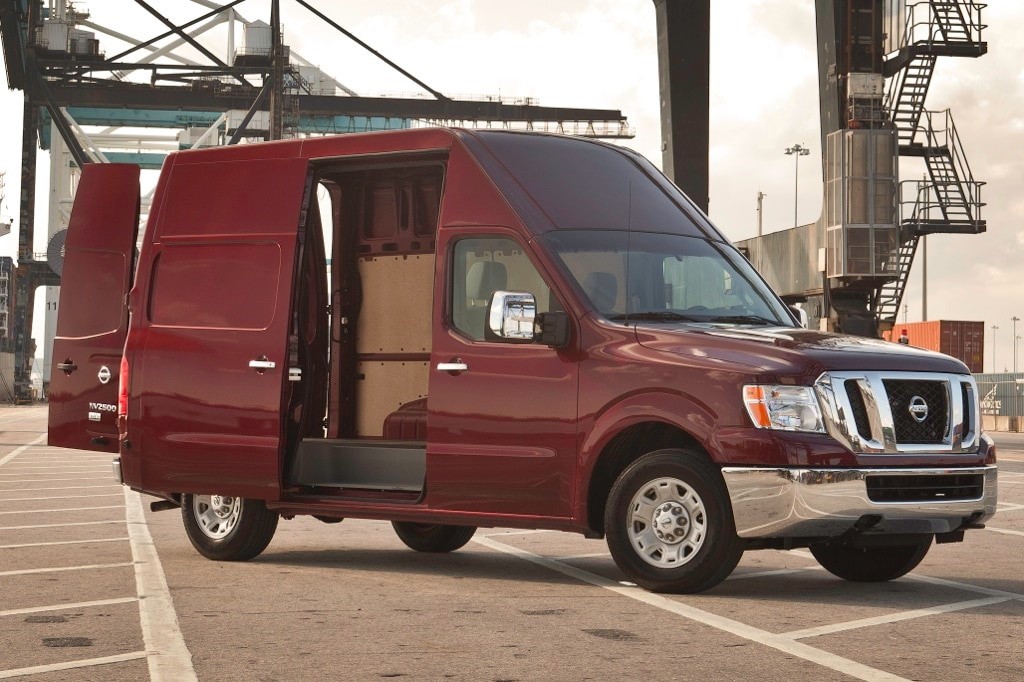Table of Contents
Are you ready to dive into the world of commerce, where businesses come in all shapes and sizes, each with its own unique set of challenges and opportunities? The box truck business is one such venture that operates at the intersection of logistics, transportation, and delivery services. These versatile vehicles, with its enclosed cargo compartments, are the unsung heroes of supply chains, delivering everything from fresh produce to consumer electronics to construction materials.
However, with great potential comes the need for robust protection. This is where box truck business insurance steps onto the scene. Much like the careful loading and securing of cargo, insurance is the safety net that ensures your business remains resilient in the face of unexpected events. It shields you from financial turmoil in cases of accidents, theft, damage to cargo, and more, allowing you to focus on what matters most: keeping your business rolling smoothly.
Whether you’re an established logistics company or an entrepreneur with a single vehicle, understanding the nuances of box truck business insurance is key to protecting your assets and ensuring your journey toward business success is as smooth as the road ahead.
To safeguard your box truck business from unforeseen circumstances:
- Evaluate Your Needs
- Research Insurance Providers
- Understand the Types of Coverage
- Determine the Coverage Limits
- Get Multiple Quotes
- Consider Bundling
- Review Policy Exclusions
- Check for Discounts
- Ensure Compliance
- Read the Fine Print
- Continuously Review and Adjust
- Maintain Safety Practices
- File Claims Properly
- Pay Premiums on Time
- Work with an Insurance Broker
Recap
1. Evaluate Your Needs
To establish a resilient foundation for your box truck business, assess your specific needs before you start shopping for insurance. For example, If you transport fragile goods or hazardous materials, you may require specialized coverage beyond standard cargo insurance. Consider the nature of your cargo, the distances you travel, and your vehicle’s value. A detailed understanding of your business operations is crucial for tailoring the right coverage.
2. Research Insurance Providers
To ensure your box truck business’s long-term success, look for insurance companies that specialize in commercial auto insurance or trucking insurance. Consider factors like the provider’s reputation, financial stability, and customer service. Look for providers with a strong reputation, experience in the industry, and a track record of handling claims efficiently. Companies like Progressive Commercial, GEICO, and Travelers offer commercial auto insurance with tailored options for box trucks.
3. Understand the Types of Coverage
To make informed decisions for your box truck business, familiarize yourself with the types of insurance coverage available. This typically includes liability coverage, cargo insurance, physical damage coverage, and more. Understand what each type covers and how it applies to your business. Liability insurance covers damages you may cause to other people or their property, while cargo insurance protects the value of the goods you transport. Make sure you understand what each type covers and how it applies to your business.
4. Determine the Coverage Limits
To streamline your box truck business’s risk management approach, decide on appropriate coverage limits. This depends on factors like the value of your cargo, the size of your fleet, and legal requirements. If your cargo is highly valuable, consider higher cargo insurance limits to fully protect your assets. These limits indicate the maximum amount your insurance provider will pay in the event of a claim. It’s crucial to strike a balance between adequate coverage and affordability.
5. Get Multiple Quotes
To harmonize your box truck business strategies, request insurance quotes from multiple providers. You might receive different quotes from various insurers for the same coverage, so shopping around can save you money. Reach out to several insurance providers to get quotes. This allows you to compare prices and coverage options to find the best fit for your business.
6. Consider Bundling
To enhance your box truck business’s stability, consider bundling your policies with the same insurance provider if you have other insurance needs, like general liability or workers’ compensation. Bundling your box truck insurance with a business owner’s policy (BOP) can provide comprehensive coverage at a reduced cost. This can often lead to discounts.
>>>PRO TIPS: Box Truck Business Accessories You Need to Succeed
7. Review Policy Exclusions
To shield your box truck business from potential disruptions, read through the policy documents to understand any exclusions. Some policies may exclude coverage for certain cargo types, like explosives or live animals. Exclusions are situations or risks that the insurance policy does not cover. Ensure you understand what situations or types of cargo might not be covered by your insurance.
8. Check for Discounts
To optimize your box truck business operations, inquire about any discounts you may qualify for. Completing a defensive driving course may make you eligible for a discount on your premiums. Insurance companies often offer discounts for factors like safe driving records, safety features in your vehicles, or bundling policies.
9. Ensure Compliance
To comply with regulatory demands and protect your box truck business, verify that the insurance policy you choose complies with all local, state, and federal regulations regarding commercial truck insurance. The Federal Motor Carrier Safety Administration (FMCSA) sets minimum insurance requirements for commercial carriers. Non-compliance can lead to fines and legal issues.
10. Read the Fine Print
To safeguard your box truck business assets and interests, thoroughly review the policy terms and conditions before finalizing your insurance policy. Some policies may have a waiting period before certain coverage becomes effective. Understand deductibles, claims procedures, and any additional endorsements or riders that may apply.
11. Continuously Review and Adjust
To fortify your box truck business against risks, reassess your insurance needs as your business evolves and periodically review them. If you expand your fleet, you’ll need to update your insurance to include the new vehicles. Adjust your coverage and limits accordingly to ensure your business is adequately protected.
12. Maintain Safety Practices
To ensure a secure and thriving box truck business, implement safety measures within your business to reduce risks. Regular vehicle maintenance and driver training can improve safety and reduce the likelihood of accidents. This can not only reduce the risk of accidents but also lead to lower insurance premiums over time.
13. File Claims Properly
To provide comprehensive protection for your box truck venture, promptly and correctly file a claim with your insurance provider. In the event of an accident, report it to your insurance company as soon as possible and provide all necessary information. Understand the claims process and ensure you have all necessary documentation. Keep detailed records and documentation.
>>>GET SMARTER: Is a Box Truck Business Profitable
14. Pay Premiums on Time
To ensure peace of mind in your box truck operations, ensure you pay your insurance premiums on time to maintain continuous coverage. Set up reminders or automatic payments to avoid missing premium due dates. Missing payments could result in a lapse in coverage, leaving your business vulnerable.
15. Work with an Insurance Broker
To secure your investment and maintain a thriving box truck business, consider working with an experienced insurance broker specializing in commercial trucking if navigating the complexities of commercial truck insurance seems daunting. A skilled broker can provide insights into the unique insurance needs of box truck businesses and connect you with suitable providers. They can help you navigate complex policies and find the best coverage options.
Recap
To ensure a secure and thriving box truck business, assess your specific insurance needs and conduct thorough research on insurance providers. Understanding various coverage options and setting suitable coverage limits ensures your business is adequately protected. Getting multiple insurance quotes and exploring bundling opportunities helps secure cost-effective coverage. It’s vital to review policy exclusions, seek discounts, and maintain compliance with legal requirements.
Read the fine print and regularly reassess your insurance plan to keep you well-prepared for any twists in the road. Prioritizing safety practices and proper claim handling is akin to ensuring your business vehicle’s roadworthiness. Pay your premiums on time and consider expert guidance from an insurance broker to keep your coverage robust. Ultimately, this journey equips you to safeguard your box truck business against unforeseen challenges, ensuring its resilience and prosperity.


